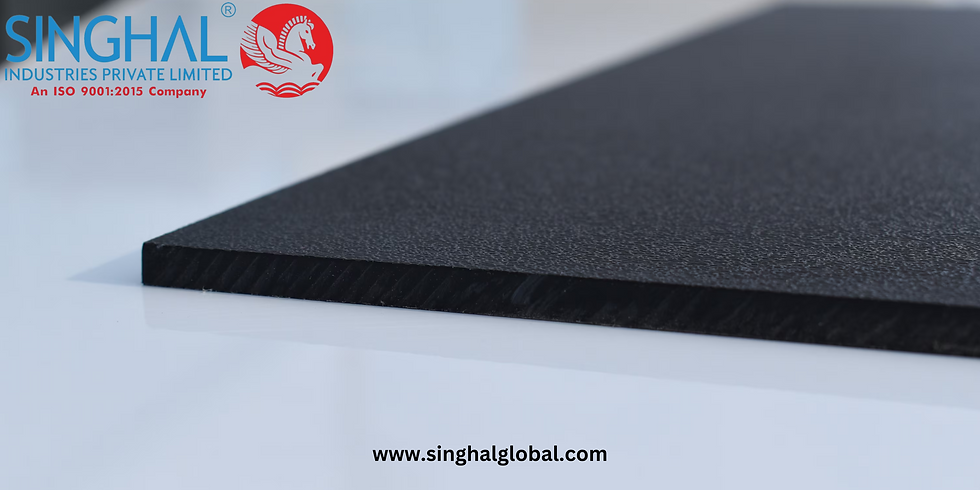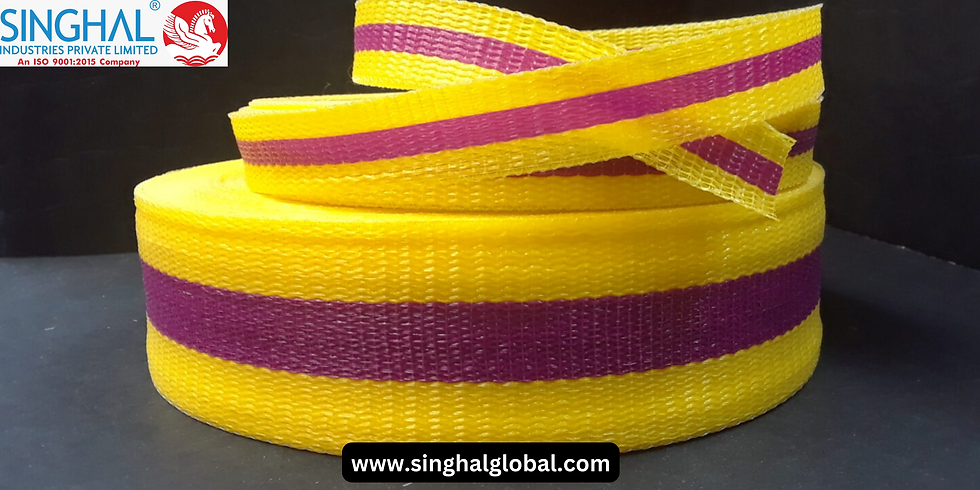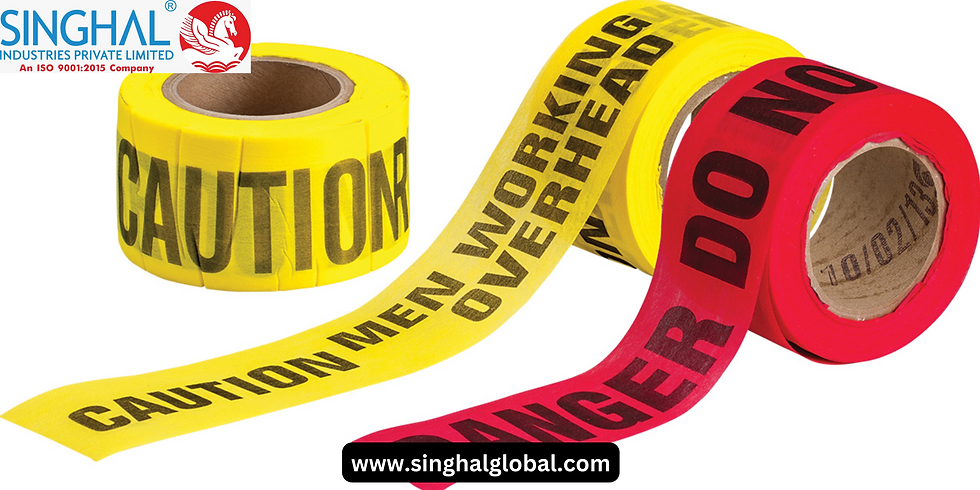What Are the Benefits of Using Textile Bags?
- Deepak Karola
- Aug 16, 2023
- 3 min read

In today's rapidly evolving world, where environmental concerns and sustainable practices have taken center stage, innovative solutions are sought to strike a balance between economic growth and ecological preservation. One such solution gaining traction is the utilization of geo-bag manufacturers in India. These versatile bags offer an array of benefits that extend beyond conventional packaging, aligning with the ethos of Singhal Industries Pvt Ltd, India's premier packaging company. In this blog, we delve into the advantages of Geo Textile Bags and explore how Singhal Industries Pvt Ltd exemplifies excellence in providing sustainable packaging solutions.
Understanding Geo Textile Bags:
Geo Textile Bags, often referred to as Geobags, are specialized containers made from high-quality geotextile fabric. Geotextile fabrics are permeable materials designed to stabilize soil and provide erosion control, and when fashioned into bags, they find application in various industries, including civil engineering, agriculture, and construction. These bags are commonly used for coastal protection, shoreline rehabilitation, riverbank stabilization, and land reclamation projects due to their exceptional durability and versatility.
Benefits of Using Geo Textile Bags:
1. Erosion Control and Slope Stabilization:
Geo Textile Bags serve as efficient erosion control tools, especially in areas susceptible to soil erosion due to water movement or other environmental factors. By placing these bags strategically, they create barriers that slow down water flow, preventing soil erosion and stabilizing slopes. This attribute is particularly vital for projects near water bodies or in regions prone to heavy rainfall.
2. Environmental Friendliness:
Geo Textile Bags are made from eco-friendly materials, contributing to sustainable development. Unlike traditional concrete or hard barriers, these bags promote natural growth while providing a protective layer against erosion. This sustainable approach aligns with Singhal Industries' commitment to environmentally conscious practices.
3. Versatility and Adaptability:
One of the standout features of Geo Textile Bags is their versatility. They can be used in diverse applications, from coastal protection to construction site management. Their adaptability ensures that these bags can be tailor-made to meet specific project requirements, adding a layer of customization that enhances their effectiveness.
4. Cost-Effectiveness:
Compared to conventional erosion control methods, such as concrete structures, Geo Textile Bags offer a cost-effective alternative. Their lightweight design facilitates easier transportation and installation, reducing labor and machinery expenses. This advantage becomes especially significant for large-scale projects.
5. High Durability and Longevity:
Manufactured from robust geotextile materials, these bags are built to withstand harsh weather conditions, including UV exposure, without deterioration. This longevity minimizes the need for frequent replacements, contributing to prolonged project sustainability.
6. Easy Installation and Maintenance:
Geo Textile Bags are relatively easy to install, requiring minimal equipment and personnel. Their low-maintenance nature further simplifies project upkeep, making them an attractive choice for various industries.
Singhal Industries Pvt Ltd: A Pioneer in Sustainable Packaging Solutions:
Singhal Industries Pvt Ltd, a trailblazer in the packaging industry, exemplifies the principles of sustainability and quality. With a dedication to enriching the community and achieving global quality standards, the company's commitment shines through in its innovative approach to Geo Textile Bags.
Frequently Asked Questions:
Q1. What is Singhal Industries Pvt Ltd known for?
Singhal Industries Pvt Ltd is renowned as India's leading packaging company, specializing in creating innovative and sustainable packaging solutions for various industries.
Q2. How does Singhal Industries uphold quality?
Singhal Industries places a strong emphasis on achieving the highest global standards of quality. They employ rigorous quality control measures throughout their manufacturing processes to ensure that their products meet or exceed customer expectations.
Q3. How do Geo Textile Bags align with Singhal Industries' values?
Geo Textile Bags align perfectly with Singhal Industries' commitment to sustainability. These bags provide effective erosion control while being environmentally friendly, showcasing the company's dedication to both quality and eco-consciousness.
Q4. Can Geo Textile Bags be customized for specific projects?
Absolutely! One of the key advantages of Geo Textile Bags is their adaptability. They can be customized to suit the requirements of specific projects, ensuring optimal performance.
Q5. What industries can benefit from Geo Textile Bags?
Geo Textile Bags find applications in a wide range of industries, including civil engineering, construction, agriculture, and environmental conservation. They are particularly valuable for erosion control and stabilization projects.
Q6. How do Geo Textile Bags contribute to cost savings?
Geo Textile Bags offer cost savings through their lightweight design, easy installation, and reduced maintenance requirements compared to traditional erosion control methods.
Conclusion: Embracing Innovation for a Sustainable Future:
Geo Textile Bags stand as a testament to human ingenuity and our capacity to develop solutions that harmonize with the environment. These bags, with their erosion control capabilities, adaptability, and environmental friendliness, exemplify the evolution of sustainable practices in various industries. Singhal Industries Pvt Ltd, as a pioneering force in the packaging sector, encapsulates these principles in its commitment to excellence and environmental stewardship. By offering Geo Textile Bags as part of its portfolio, Singhal Industries not only enriches its reputation but also contributes to a more sustainable and resilient future for generations to come.



Comments